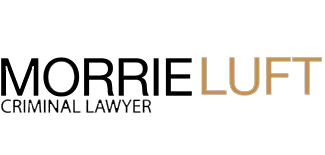Rights and Freedoms
The Canadian Charter of Rights and Freedoms sets out a number of rights and freedoms that apply to every single person in Canada. This article will provide a brief introduction to the Charter and the remedies that are available under Section 24.
The rights and freedoms protected by the Charter are central to the practice of criminal law. The rights protect individuals from state conduct and include:
- The right to be free from an unreasonable search and seizure (Section 8);
- The right to not be arbitrarily detained (Section 9);
- The right to be advised of the reasons for your detention and the right to speak to a lawyer upon detention (Section 10); and
- The right to be tried within a reasonable amount of time and the right to be presumed innocent (Section 11 b & d).
The Charter is an exceptionally important document due to the remedies that are available. Because these remedies include a stay of proceedings or the exclusion of evidence, it is critical that your lawyer examine your case for any Charter breaches. Your lawyer must advise you of a Charter breach the same way he would have to advise you if there was a defence to your charge. Illegal searches that lead to seizures of contraband and unlawful detentions are rights that seem to be violated regularly.
However, even if the court finds that there was a Charter breach, it does not mean that evidence that was illegally obtained will be excluded. Â There is a two-step process that the court must go through before making a final decision. The first step was determining whether there was a Charter breach. Â The second step looks at whether the administration of justice would be brought into disrepute if the evidence that was obtained in a manner that infringed or denied any rights or freedoms guaranteed by the Charter were excluded (Section 24(2)).
In Canadian law, there is not an automatic exclusion rule. Â Instead, the judge is directed to examine whether a reasonable person, informed of all the relevant circumstances and the values underlying the Charter, would conclude that the admission of the evidence would bring the administration of justice into disrepute. A judge who is asked to exclude evidence must assess and balance the effect of admitting the evidence on society’s confidence in the administration of justice. The three questions the judge must examine when making this decision are: the seriousness of the state-infringing conduct, the impact of the breach on the Charter-protected interest of the accused and society’s interest in adjudicating the case on its merits. If the judge is going to exclude the evidence, the judge must find that on a balance of probabilities the admission of evidence would bring the administration of justice into disrepute.
Charter litigation is different from other types of cases. Cases that involve Charter issues are often complex and involve cross-examining police officers instead of civilian witnesses. Mr. Luft, a Toronto criminal lawyer, has successfully argued that evidence should be excluded in many cases. To discuss your case with Morrie Luft, contact him at 416-433-2402 or send him an email.

